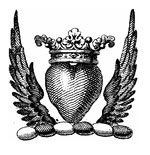
Being & the Beginning of Wisdom
BETWEEN FAITH & REASON
Almost two decades ago, Pope St. John Paul II asked for a new beginning in Western philosophy. What he called “the wings of faith and reason,” which once soared high in the sunlight of truth, had ceased working in unison and had begun losing altitude. He counseled that only a return to wisdom could reunite these “wings.” In his encyclical Fides et Ratio (“Faith & Reason,” 1998), he asked philosophers to go beyond the “sterile repetition of antiquated formulas” (no. 97). What might those be? An example would be old philosophical definitions dating to ancient Greece, such as the biology-based “rational animal” definition of human nature. The concept of personhood did not exist in those days and only came about in the later context of Christianity. But the so-called animal base of our nature, a concept that should have been abandoned long ago, is still used. Faith united to such an outmoded definition was destined to fall into skepticism, empiricism, and many subsequent other “isms.”
So, where is faith today? Where is reason? Were they ever truly united in Western civilization?
The first thing to know is that wings are not directly attached to each other. They extend from a body with a head and a heart. We can call this body wisdom. It is wisdom that connects the wings of faith and reason and keeps them active and working together.
Philosophy means love of wisdom. Like bees seeking pollen, philosophers since ancient days have tried to identify man’s inner source of wisdom. They have never found it. And this is what John Paul asked philosophers to seek once again. He called this inner source being. He asked philosophers to “turn to the philosophy of being” — which he described variously as “dynamic,” “strong,” and “enduring” — because it “allows a full and comprehensive openness to reality as a whole, surpassing every limit in order to reach the One who brings all things to fulfilment” (ibid.).
By thinking that we are basically animals, we remain unable to find the source of wisdom within our nature. The senses of an animal have no access to the being of things. A robin rooting about for a worm below the surface of the ground eventually knows where the worm is. We do not. But the robin does not know that the worm is. We do. If the robin knew that the worm is, a bird could become a philosopher.
You May Also Enjoy
Starting at Christmas 1939, Pius XII issued a Christmas Eve broadcast in which he attacked the ideologies of those who had brought the war to mankind.
The scientific community holds a bias against the supernatural that is more censorial than any bias religion could have against science.
Junk-Food Catholics... God Gift-Wraps His Presents... Catholicism, As Corrected By Tarditional Anglicans... Just a Little Bit Catholic... Aquinas & Transubstantiation... St. Augustine: 'A Mindless Sectarian'?... Profound Ignorance of Judaism... Irresponsible Parents...

